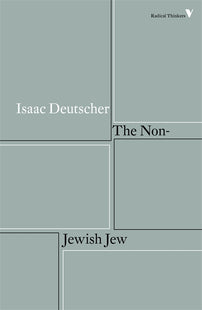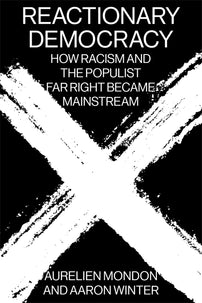Éric Zemmour, ‘anti-Semitic Jew’?
According to Esther Benbassa and Jean-Christophe Attias, Éric Zemmour is a far-right politician who, by playing on his status as a Jew, gives the far right, which is traditionally anti-Semitic, a veneer of respectability.

Is Éric Zemmour a ‘Jewish anti-Semite’? A question often raised in recent times, but not easy to answer. The paradoxical figure of the Jew as an enemy of Jews may confuse the hasty observer. Fantasy, fiction, oxymoron? Not at all. The figure of the Jewish enemy of Jews haunts Jewish memory, and Jewish history offers many examples. But defining it is no easy task.
Jewish traitor figures
There is the person who questions the foundations of Judaism and its doctrine, whom rabbinic tradition excludes from the benefits of the world to come. There is the reader of heretical books. The person who dares to pronounce the ineffable Name of God. The informer. The person who separates himself from the community. The sinner who incites others to sin. The apologist. The person who transgresses the boundaries of the community, siding with the adversary and the persecutor, and strikes a blow that is all the more serious because the community is a minority, dispersed and therefore fragile.
Clearly, Éric Zemmour does not fall into this category. He calls himself a Jew – a Jew of little faith, it seems, like many others. Of Judaism as a religion or a culture, of the Jews as a people and their history, he says nothing interesting or new, because he doesn’t know much about it and can only repeat a few stale and simplistic clichés.
If the contemporary history of the Jews was for many a history of integration, secularisation and even, for some, assimilation, for others it was a history of adherence to the great revolutionary utopias, and for others again the moment of emergence of the Jewish national idea, of which Zionism was a particular form. But even in a land of integration, particularly France, Jews were not required to renounce their identity.
Integration and identity
Pierre Birnbaum’s book Les Fous de la République traces the itineraries of the ‘state Jews’ of the Third Republic, high-ranking civil servants who loyally served France without denying their faith. Few of them Frenchified their names, and conversion was rare. When Zemmour urges Muslims to fully assimilate and change their forenames, the Jewish model he appeals to is fictitious. The nineteenth-century ‘Israelite’ (the label adopted at the time even by Jews themselves, the word ‘Jew’ being historically charged with too many negative connotations) that Zemmour imagines and calls on our Muslim fellow citizens to imitate no longer exists.
France was the country where Jews, after their emancipation in 1790-91, were able to be full-fledged citizens, to rise socially and occupy high positions in the state apparatus without having to change their religion. Jews became French citizens only on condition that they renounced any “communitarian” status.
Zemmour overdoes it, however, when he repeats out of context the celebrated formula Clermont-Tonnerre proposed to the Constituent Assembly: ‘We must deny everything to the Jews as a nation in the sense of a constituted body and grant everything to the Jews as individuals...’ Historians are divided as to the meaning to be given to this statement, considered by many as simply an oratorical flourish. But Zemmour appropriates it to justify his assimilationist injunction and find a historical precedent for it.
The assimilation that Zemmour demands of Muslim Arabs is a chimera, and all the more meaningless today given that identity claims are expressed in an increasingly assertive manner in our society – among Jews as well, especially since the Six-Day War and the arrival in France of North African Jews. It is too often forgotten that the integration of Jews in France took no less than a century; that of Muslims is still underway, and the doors of the Republic have still to be fully opened to them.
[book-strip index="1" style="display"]A case of ‘Jewish self-hatred’?
The socio-psychological dimension of Jewish ‘anti-Semitism’ was highlighted in the early 1930s by the German cultural historian and philosopher Theodor Lessing, author of a book entitled Jewish Self-Hate. The book examines six individual cases, including that of Otto Weininger (1880-1903), a Viennese Jew who converted to Protestantism and eventually committed suicide. In fin-de-siècle Vienna, Jews felt an integral part of the surrounding society, yet that society, undermined by anti-Semitism, did not perceive them in this way and broadcast a very negative image of them. Self-hatred, a pathological reaction linked to a social situation as much as to a psychological profile, is then mainly the internalisation of this rejection of the other.
France in 2022, however, is a completely different context from that of fin-de-siècle Vienna, let alone that of a Europe dominated by the Nazis, where members of the ‘Jewish councils’ created by the Nazis could be tempted to work with the enemy in an attempt to save what they thought could be saved, but would later be accused of having been nothing more than Jewish ‘collaborators’ on the payroll of the exterminators.
If he scarcely seems tempted by religious controversies, and if despite his proclaimed (and tactical) taste for churches, nativity scenes and midnight masses, Zemmour never seems to have seriously considered converting to Christianity himself, still less to have nourished the project of convincing his co-religionists to do the likewise, he also does not seem inclined to Jewish self-hatred. He calls himself a non-Zionist, but there are other kinds of Jew. And he presents himself publicly, quite without shame, as ‘a little Berber Jew from the other side of the Mediterranean’ (public meeting in Villepinte, 5 December 2021).
Zemmour was misguided to call his party ‘Reconquest!’ in reference to the Christian reconquista of Spain, which succeeded in 1492 not just in emptying the Iberian peninsula of its Muslims, but also of its Jews. Otherwise, Éric Zemmour is simply the reincarnation of an outdated Israelite-ism, at odds with a mainstream Jewish identity today that sees no contradiction between fidelity to Judaism, attachment to Israel, and loyalty to France and the Republic.
When Haim Korsia, chief rabbi of France, described Zemmour as an ‘anti-Semite’, he had a very clear reason for this. By attempting to rehabilitate Pétain and falsify the history of French Jews during the dark years, even going so far as to cast doubt on the innocence of Captain Dreyfus, Zemmour undermines what is most sensitive in contemporary Jewish ‘memory’. In fact, rather than an ‘anti-Semitic Jew’, Zemmour is an extreme right-wing politician who happens to be Jewish and who, by playing on this quality, gives the traditionally anti-Semitic and no less racist far right a veneer of respectability. He has given speech free rein and made the worst things honourable – if a Jew says this, then you can say anything.
In this respect, Zemmour is a danger to national cohesion, to the public, and to Jews.
Originally published at: https://www.nouvelobs.com/bibliobs/20220114.OBS53227/eric-zemmour-juif-antisemite.html.
Translated by David Fernbach.




